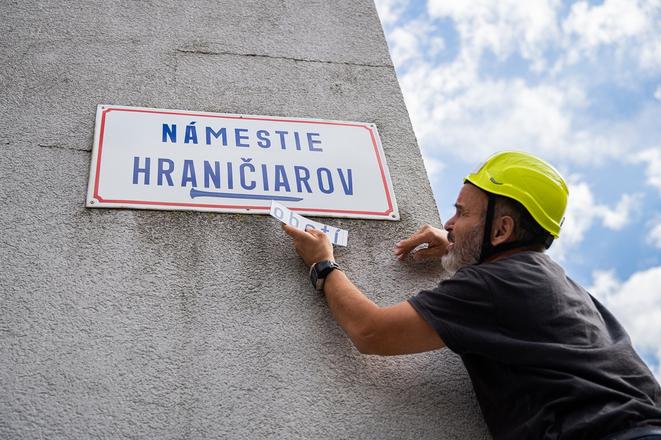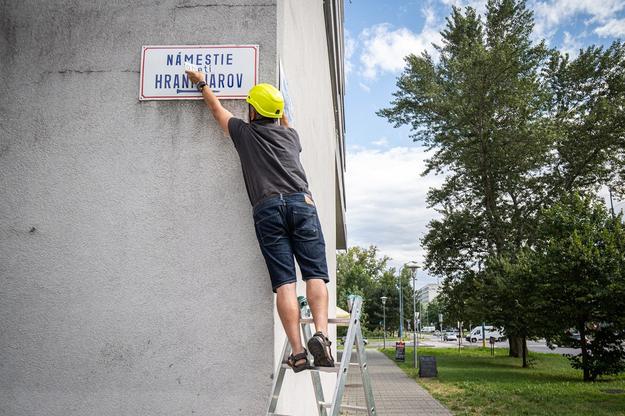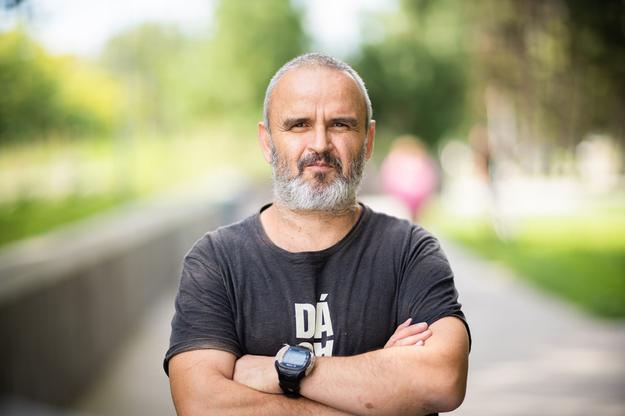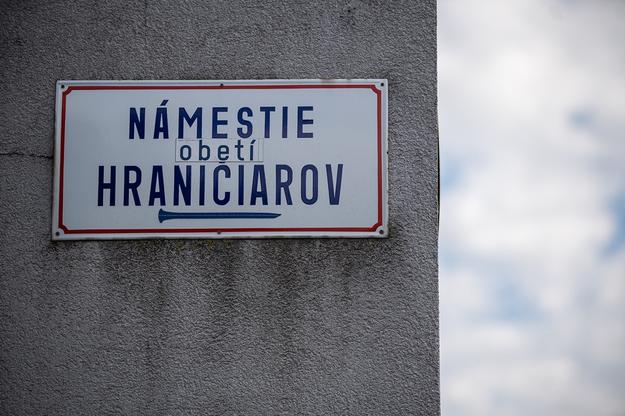This has been ongoing for several years now. Geophysicist Martin Bednárik brings a ladder and magnets he has made. With the ladder on his shoulder, he goes around the entirety of a large square in Bratislava's Petržalka borough and attaches magnets to street name signs.
Although the magnets carry just one word, they change the whole meaning of the name. With a single magnet, Námestie Hraničiarov (Square of Border Troops) becomes Námestie Obetí Hraničiarov (Square of Victims of Border Troops). Instead of glorifying killers, Bednárik commemorates the victims they killed at the border.
Even when people take his magnets down eventually, he always reinstalls them and has no intention of stopping.
A minimalist protest
"I was thinking about what to do with Námestie Hraničiarov Square. Border troops with dogs guarded us as if we were in a prison. They killed many people while they tried to escape. The city district amounted to nothing, nor did the municipality itself. However, I wanted to express my disagreement in a non-invasive way. And at the same time be minimalistic, yet emphatic. I thought about a sticker, but that would be invasive. Then I tried a magnet. I tried various magnetic foils until I found the right thickness. I came up with a word that fits between the two already on the sign. A keyword that changed its meaning to the correct one. Then I placed the magnet."
This is how Martin Bednárik describes the initiative he came up with a few years ago. Since then, he has regularly organised happenings on All Souls' Day in the square, which includes the installation of magnets. In his opinion, when we remember our loved ones, victims of mountain and river accidents, we should also remember the victims of totalitarianism.
"Some magnets last a year, others less. The square is large, 15 street name signs. One is 5 metres high, that one lasts longer. They are probably taken down by border guards, communism or fascism apologists, or pragmatists. It's a competition in patience, who will last longer. And I made it a point to last longer."
Bednárik realises that while crowds of people rush through the streets, only a handful participate in his happening. He explains that he also enjoys the creative process itself.
"During the installation, sometimes a verbal confrontation occurs. I try to explain to passers-by what I try to do," he says.
His approach is also imaginative in that no one can accuse him of vandalism or damaging someone else's property. Rather, it is specific street art that confronts passers-by with their own inattention and indifference.
He also chose a typeface similar to that found on street name signs, supplied by graphic designer Ondrej Jób, who documents the signs used in public spaces. The new name can confuse and disorient a pedestrian.
During the installation, some people stop by, surprised and wondering about what is going on. A man with a boxer's body shakes his head and mutters angrily that this is about some Ukrainian victims all over again.
"Insensitivity to the victims of totalitarian regimes in Slovakia is directly related to insensitivity to the victims of today's Russian invasion of Ukraine. Once a month with friends I also go on hikes where we follow the blue and yellow trail markers. If a significant number of Slovaks wishes for freedom-loving Ukrainians to be enslaved, then they are not worthy of their own freedom and will lose it. We got lost in the labyrinth of world history."




